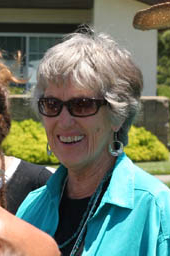A Quote by Albert Einstein
Understanding of our fellow human beings...becomes fruitful only when it is sustained by sympathetic feelings in joy and sorrow.
Related Quotes
Sorrow is so woven through us, so much a part of our souls, or at least any understanding of our souls that we are able to attain, that every experience is dyed with its color. This is why, even in moments of joy, part of that joy is the seams of ore that are our sorrow. They burn darkly and beautifully in the midst of joy, and they make joy the complete experience that it is. But they still burn.
When you look at what is happening to our world-and it is hard to look at what's happening to our water, our air, our trees, our fellow species-it becomes clear that unless you have some roots in a spiritual practice that holds life sacred and encourages joyful communion with all your fellow beings, facing the enormous challenges ahead becomes nearly impossible.
A life without a lonely place, that is, a life without a quiet center, easily becomes destructive. When we cling to the results of our actions as our only way of self-identifiction, then we become possessive and defensive and tend to look at our fellow human beings more as enemies to be kept at a distance than as friends with whom we share the gifts of life.
Joy is what we are, not what we must get. Joy is the realization that all we want or need in life has been etched into our souls. Joy helps us see not what we are "going through," but what we are "growing to"-a greater sense of understanding, accomplishment, and enlightenment. Joy reveals to us the calm at the end of the storm, the peace that surpasses the momentary happiness of pleasure. If we keep our minds centered on joy, joy becomes a state of mind.
The difference between shallow happiness and a deep, sustaining joy is sorrow. Happiness lives where sorrow is not. When sorrow arrives, happiness dies. It can't stand pain. Joy, on the other hand, rises from sorrow and therefore can withstand all grief. Joy, by the grace of God, is the transfiguration of suffering into endurance, and of endurance into character, and of character into hope--and the hope that has become our joy does not (as happiness must for those who depend up on it) disappoint us.
Empathy and fellow feeling form the very basis of morality. The capacities for empathy, for feeling responsibility toward others and for reaching out to help them can be stunted or undermined early on, depending on a child's experiences in the home and neighborhood. It becomes too easy to turn our backs on fellow human beings... to have 'compassion fatigue.' Technology, we are learning, is not neutral.
It only take a few minutes of meditation to directly realize we are a river of sensations, feelings, thoughts, perceptions. How can we navigate this evanescent river of life wisely? With mindful awareness and love it becomes clear. You can fight against the river of change, or use its wisdom to teach you how to graciously move and create and flow with the full measure of joy and sorrow, gain and loss, praise and blame that make up every human incarnation.



































